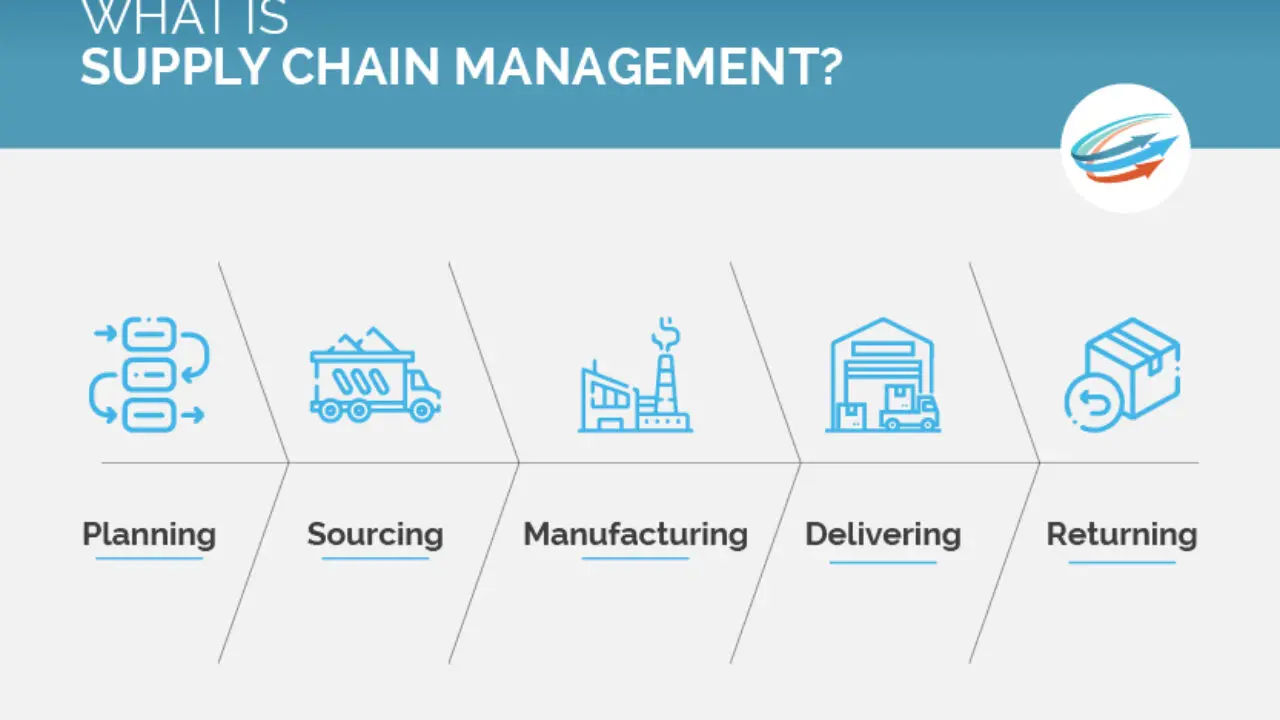
1. AI in Supply Chain Management: Revolutionizing Decision-Making
AI is becoming an essential tool in supply chain management, offering advanced capabilities like predictive analytics, demand forecasting, and route optimization. By leveraging vast amounts of data, AI systems can make real-time decisions that help businesses streamline operations.
Key Benefits of AI in Supply Chain:
- Predictive analytics for better inventory management and demand planning.
- Automated route optimization for faster deliveries.
- Smart warehouse management using AI-powered robots and drones.
AI is transforming traditional decision-making by providing accurate forecasts and real-time insights, allowing companies to anticipate disruptions and adapt swiftly.
2. Automation in Warehousing and Inventory Management
Automation technologies, including robots, drones, and automated guided vehicles (AGVs), are revolutionizing warehousing operations. These systems help manage inventory more efficiently, reduce human errors, and speed up order fulfillment.
Benefits of Automation in Warehousing:
- Faster picking and packing through robotic arms and AI-driven systems.
- Reduced labor costs by replacing manual tasks.
- Improved inventory accuracy with real-time tracking and RFID technology.
Automated warehouses also enhance safety by minimizing human involvement in hazardous tasks. As a result, businesses can operate 24/7 with less downtime and greater productivity.
3. AI-Driven Demand Forecasting and Inventory Optimization
Accurate demand forecasting is essential for maintaining an efficient supply chain. AI-driven solutions use historical data, market trends, and real-time insights to predict demand, helping companies optimize their inventory and reduce excess stock.
Advantages of AI-Driven Forecasting:
- Reduced stockouts and overstocking.
- Improved customer satisfaction by ensuring products are always available.
- Better cash flow management by minimizing unnecessary inventory.
AI can also identify demand fluctuations and market trends, allowing businesses to adjust their strategies and avoid supply chain bottlenecks.
4. Autonomous Vehicles and Drones in Logistics
The use of autonomous vehicles (AVs) and drones in logistics is set to revolutionize delivery services. These technologies reduce delivery times, increase operational efficiency, and lower transportation costs.
Key Benefits of Autonomous Vehicles and Drones:
- Faster deliveries with self-driving trucks and drones.
- Cost savings from reduced fuel and labor expenses.
- Lower environmental impact with electric vehicles and drones.
As these technologies become more advanced, they will play a significant role in reshaping last-mile delivery and long-distance transportation.
5. Blockchain and AI for Supply Chain Transparency
AI combined with blockchain technology is enhancing supply chain transparency by offering secure, immutable records of transactions. This ensures that all parties in the supply chain have access to verified information in real-time.
Blockchain Benefits in Supply Chains:
- Increased transparency and accountability in every step of the supply chain.
- Reduced fraud and counterfeiting with secure, verifiable records.
- Enhanced traceability of products from source to consumer.
By integrating AI with blockchain, companies can ensure a transparent, efficient, and secure supply chain that fosters trust among partners and customers.
6. The Future of AI and Automation in Supply Chain Management
Looking ahead to 2025 and beyond, the integration of AI, automation, and IoT will continue to enhance supply chain management. Innovations such as smart factories, digital twins, and 5G connectivity will further optimize processes, reduce delays, and enable real-time collaboration across the supply chain.
Trends to Watch in the Future:
- Smart factories with interconnected systems and AI-driven operations.
- AI-powered supply chain networks with enhanced machine learning capabilities.
- Real-time monitoring and decision-making through advanced IoT devices and 5G technology.
These advancements will offer businesses unparalleled operational agility and the ability to adapt quickly to changing market demands.
Comparison of Key AI and Automation Technologies in Supply Chain
| Technology | Key Benefits | Applications |
|---|---|---|
| AI and Machine Learning | Predictive analytics, smart decision-making | Demand forecasting, route optimization |
| Automation (Robots, Drones) | Faster order fulfillment, reduced labor costs | Warehousing, picking/packing, last-mile delivery |
| Autonomous Vehicles | Faster, cost-effective transportation | Long-distance logistics, last-mile delivery |
| Blockchain | Increased transparency, secure transactions | Tracking, supply chain security |
| IoT and 5G | Real-time data tracking, enhanced connectivity | Supply chain monitoring, real-time decision-making |
Conclusion: The Future of Logistics is Smart, Fast, and Secure
AI and automation technologies are transforming the landscape of supply chain management. From automated warehouses and AI-driven forecasting to autonomous vehicles and blockchain security, these innovations are paving the way for faster, more efficient, and more transparent logistics. As businesses embrace these technologies, the future of supply chain management will be more agile, cost-effective, and customer-focused than ever before.
